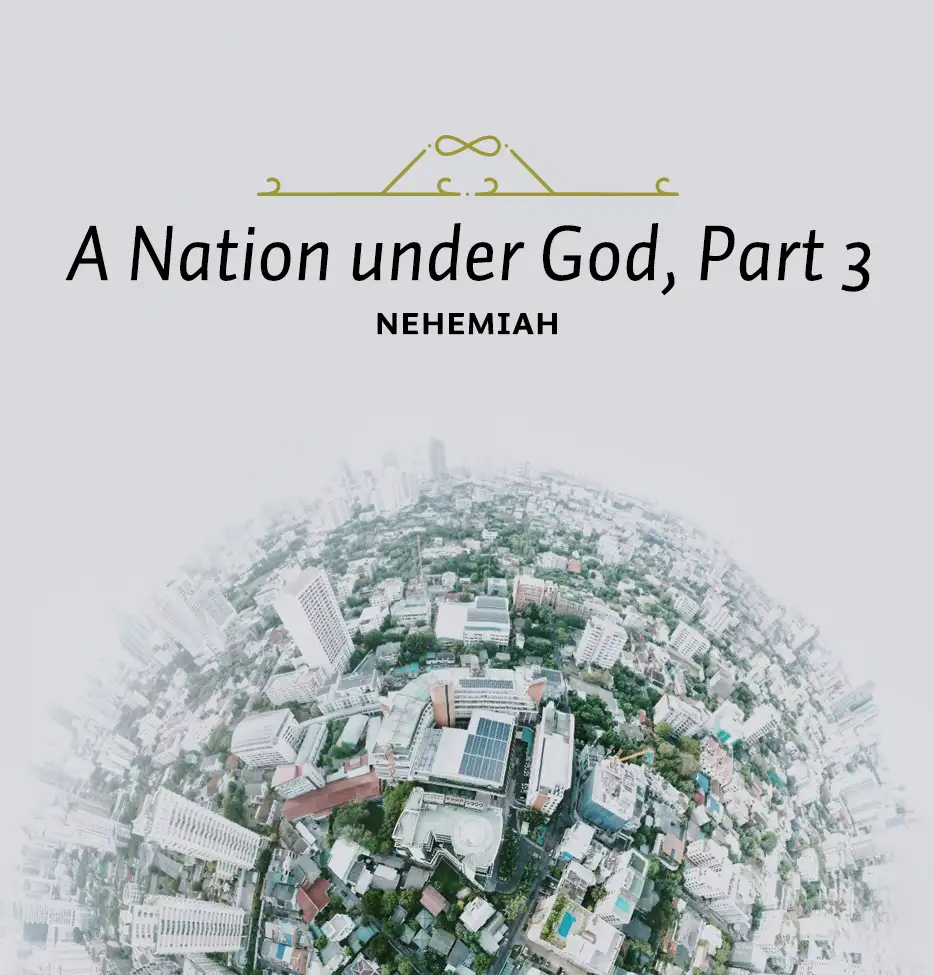2. The Sabbath (v. 31). The second specific commitment of the people on this great covenant day was to the Sabbath, to keep it by abstaining from all commercial activity, and to observe the seventh year Sabbath of the land in which the fields would not be worked. The requirement has precedent in God’s resting from creation on the seventh day and goes back to the Ten Commandments which say, “Remember the Sabbath day by keeping it holy” (Exod. 20:8). In my opinion, Christians are not under the specific Sabbath laws of the Old Testament. We have been delivered from keeping “special days and months and seasons and years” (Gal. 4:10). But that is not the whole story. True, we have not been commanded to observe an inactive Sabbath. But we have been given a new day, the Lord’s Day, to enjoy. Our day is not a sober day of withdrawal. It is a day of active, joyful worship. But the question is: Do we actually enjoy it as such? Do we use it for worship, Christian service and witness? Or do we only pretend to do it, spending a few formal moments in church in order to be free to spend the rest of the day watching football or merely lounging around?
3. The temple tax (vv. 32-33). The third matter in which the people of Jerusalem made a formal commitment was the paying of the temple tax. Here we have two problems. The first is technical. In the Pentateuch, according to Exodus 30:11-16, the temple tax had been fixed at half a shekel, while here, in Nehemiah 10:32, it is a third of a shekel. Since not even the priests were free to alter God’s law, some explanation is in order. Usually this is explained by assuming that the Jerusalem and Babylonian shekels had different valuations, which is not unlikely, or by noting that in Exodus the tax was only to be paid when a census was taken while in Nehemiah it was to be paid annually.
The bigger problem is in relating this temple tax to ourselves. We do not have anything like a large central temple in our religious systems, and the more general matter of support of Christian work by our stewardship is covered later in reference to the tithe (see number 6 below). Is the matter of the temple tax therefore completely irrelevant to us?
I do not think so. Rather, I think that this item (as well as the added concern to provide wood and other necessary supplies for the temple, which comes next) shows a priority. It is a priority for having a central location for corporate worship and for God’s service.
We need similar focal points for Christian faith today. The obvious ones are the local churches.
I notice here that although the Persian kings had made certain important provisions for the Jewish temple (cf. Ezra 6:8-10), the people did not expect them to keep on doing that but rather assumed responsibility for providing for the temple services themselves. That is also a Christian responsibility. The government may provide certain advantages to churches and other “charitable” organizations. But we cannot expect the government to support them. Nor should it. If Christians do not support the Lord’s work, the Lord’s work will not be supported.
4. Additional provisions for the temple (vv. 34-35). The people of Jerusalem seem not to have been content merely with paying the temple tax. They recognized that the temple service required other things which they also could provide, specifically wood for the great altar and the firstfruits of their crops and trees. They promised to supply it. In the same way, there are things we can give to Christian work aside from money. Service organizations need donations of food and clothing. We can offer our expertise in certain areas. Most importantly, we can contribute time.






